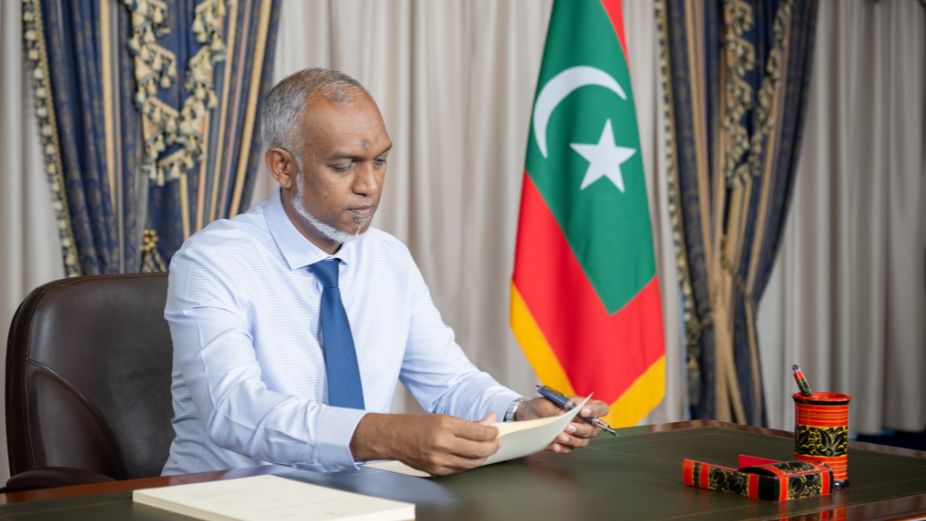
The ongoing Housing Development Corporation (HDC) scandal has taken a dramatic turn with revelations about a seven-page letter detailing corruption allegations that seemingly went unnoticed by the highest levels of government. The letter, authored by former HDC Chairman Ahmed Zuhoor, paints a damning picture of systemic corruption within one of the largest state-owned enterprises in the Maldives.
A Letter That Went Ignored
Ahmed Zuhoor, who served as HDC Chairman until his dismissal in May, claims he sent the detailed letter to President Mohamed Muizzu in July. The letter outlined multiple incidents of alleged corruption tied to the then-Managing Director, Ibrahim Fazul Rasheed, and other figures within HDC. Among the allegations are claims of bribe-taking, misuse of resources, and decisions that blatantly ignored due process.
Recent revelations, however, suggest that the letter may not have been as unnoticed as initially thought. Reliable sources have confirmed that the President’s Office received a physical copy of the letter on 1 July, which was signed for by a staff member. Additionally, the letter was reportedly sent directly to a WhatsApp number used by President Muizzu. Despite these confirmations, the President maintains that he never received or reviewed the communication.
In a public statement, the President reiterated his commitment to addressing corruption, stating that any credible information received by his administration is acted upon immediately. However, critics argue that the failure to address the letter sooner raises questions about communication lapses and potential negligence within the President’s Office.
Allegations of Widespread Corruption
Zuhoor’s letter described a deeply flawed system within HDC where money allegedly dictated outcomes. Among the claims are instances of land allocations, contract awards, and other significant decisions being influenced by financial incentives. These allegations extend to large-scale infrastructure projects, with contracts issued at inflated rates and land swaps executed without board approval or transparency.
Key allegations include:
- Land and flat allocations allegedly granted in exchange for bribes.
- Decisions benefitting companies linked to Fazul, including land swaps and favourable contract terms.
- Advance payments issued for major projects without proper approvals or funding arrangements.
- Manipulation of board processes and failure to disclose conflicts of interest.
The letter also accused Fazul of personally benefiting from several decisions, including favourable terms for his wife’s land purchases and transactions involving companies in which he had financial stakes.
Questions of Oversight
The revelation of the letter raises serious concerns about government oversight and accountability. As the head of one of the nation’s largest state-owned enterprises, Zuhoor’s concerns should have triggered immediate investigations. Instead, they appear to have been ignored, allowing the situation at HDC to escalate further.
The President’s denial of receiving the letter has sparked public scepticism. Critics argue that such a detailed account of corruption, sent to the highest office in the country, should not have gone unnoticed. The lack of follow-up raises concerns about communication lapses or deliberate negligence within the government.
A Systemic Issue
The HDC scandal has exposed significant vulnerabilities in the administration of state-owned enterprises and the broader governance framework. The allegations suggest not just isolated incidents but a pattern of systemic abuse that extends beyond HDC.
The dismissal of 15 HDC employees, including senior figures, and the appointment of Mauroof Jameel as the new Managing Director are being presented as steps to restore trust. However, these actions do little to address the larger issue of accountability for those who allegedly allowed corruption to flourish unchecked.
The Need for Accountability
As investigations continue, the government faces mounting pressure to explain how such serious allegations could have been overlooked. The confirmation that both a physical and digital copy of Zuhoor’s letter were delivered to the President’s Office further complicates the administration’s position. Critics argue that this is not just a failure of one SOE but a systemic issue requiring broader reforms.
For many Maldivians, the scandal has become a test of the administration’s commitment to transparency and justice. The unanswered questions about Zuhoor’s letter only add to the growing distrust in the government’s ability to manage public assets and ensure accountability at the highest levels.
The coming weeks will be crucial in determining whether the administration can address these concerns and take the necessary steps to rebuild public confidence. Whether the government’s response will restore trust or deepen scepticism remains to be seen.









